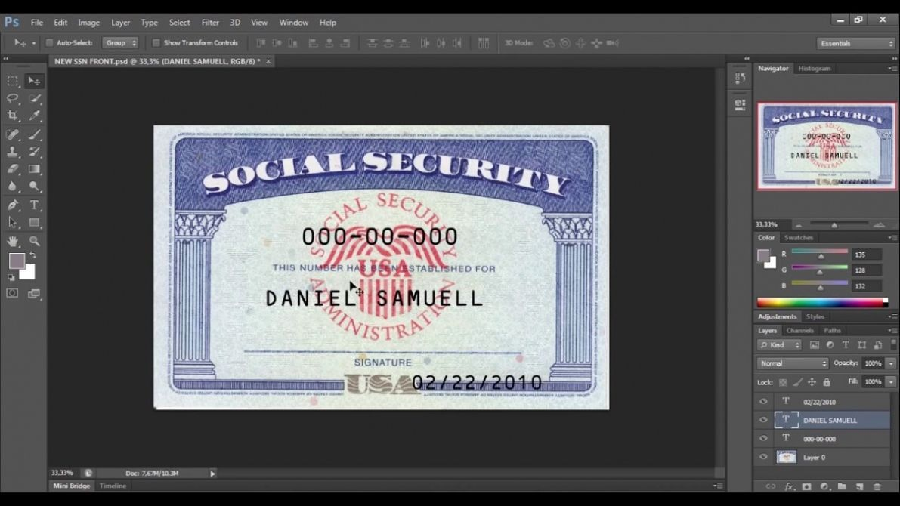
Your Social Security Card (SSN) was initially provided by the government so that they could keep track of your salary and pay you retirement benefits when the time came. However, it has grown into much more than that over its history. It’s your key to unlocking a lot of your personal data. If a thief got their hands on your name and SSN, they could open new credit and bank accounts in your name, rent an apartment in your name, and even get a job in your name.
Don’t ever carry your Social Security card around in your wallet
There is no need that you always carry your Social Security card with you. Hold on to it and keep it in a safe spot at home. Conduct a search for any additional cards that could include your Social Security Card. To edit social security card it works fine.
You should always inquire as to why they want your Social Security Card
There is no regulation that bans firms from requesting for a person’s Social Security Card (SSN). And if you don’t furnish the number, you risk having the service rejected to you. Instead of giving your Social Security Card to a business if you don’t want to, you might ask whether there are other ways to verify your identity. You may also request a different customer identification number be assigned to you by the firm.
Remember that your Social Security Card may be needed by certain government agencies. A few examples include the Social Security Administration, the Internal Revenue Service, and the Department of Motor Vehicles. Look for a form titled “disclosure” that must be filled out. On the form, it should be made clear whether supplying the number is necessary or optional, how it will be put to use, and what gives the organization the right to seek it in the first place. California law places limits on how widely a person’s Social Security Card may be shared.
Displaying a person’s Social Security Card in public is illegal in the Golden State. The statute bans the following
- Having SSNs shown on official identification documents
- Avoid include Social Security Cards on customer correspondence unless required by law or the document is a form or application.
- Mailing items, such as postcards, where the recipient’s Social Security Card is clearly visible without even opening the envelope.
To avoid detection, one option is to encode one’s Social Security Card into a card, document, or other document using a bar code, chip, or magnetic strip.
Asking for sensitive information like Social Security Cards over an unsecured network or without using encryption is a security risk.
- Requiring users to provide their Social Security Cards when logging onto a website even if they have a password
- Companies, the government, and others are all covered by the new law.
Applying for a new Social Security Card is not advised at this time
People whose identities have been stolen may choose to change their Social Security Card. Generally speaking, this is not something that the Social Security Administration will allow. As it turns out, there are repercussions to altering your number. It’s likely that your decision may result in you losing access to your transcripts, diplomas, and credit reports. It will be difficult to open a bank account, apply for a credit card, or rent an apartment without a credit history that matches your new Social Security Card.





